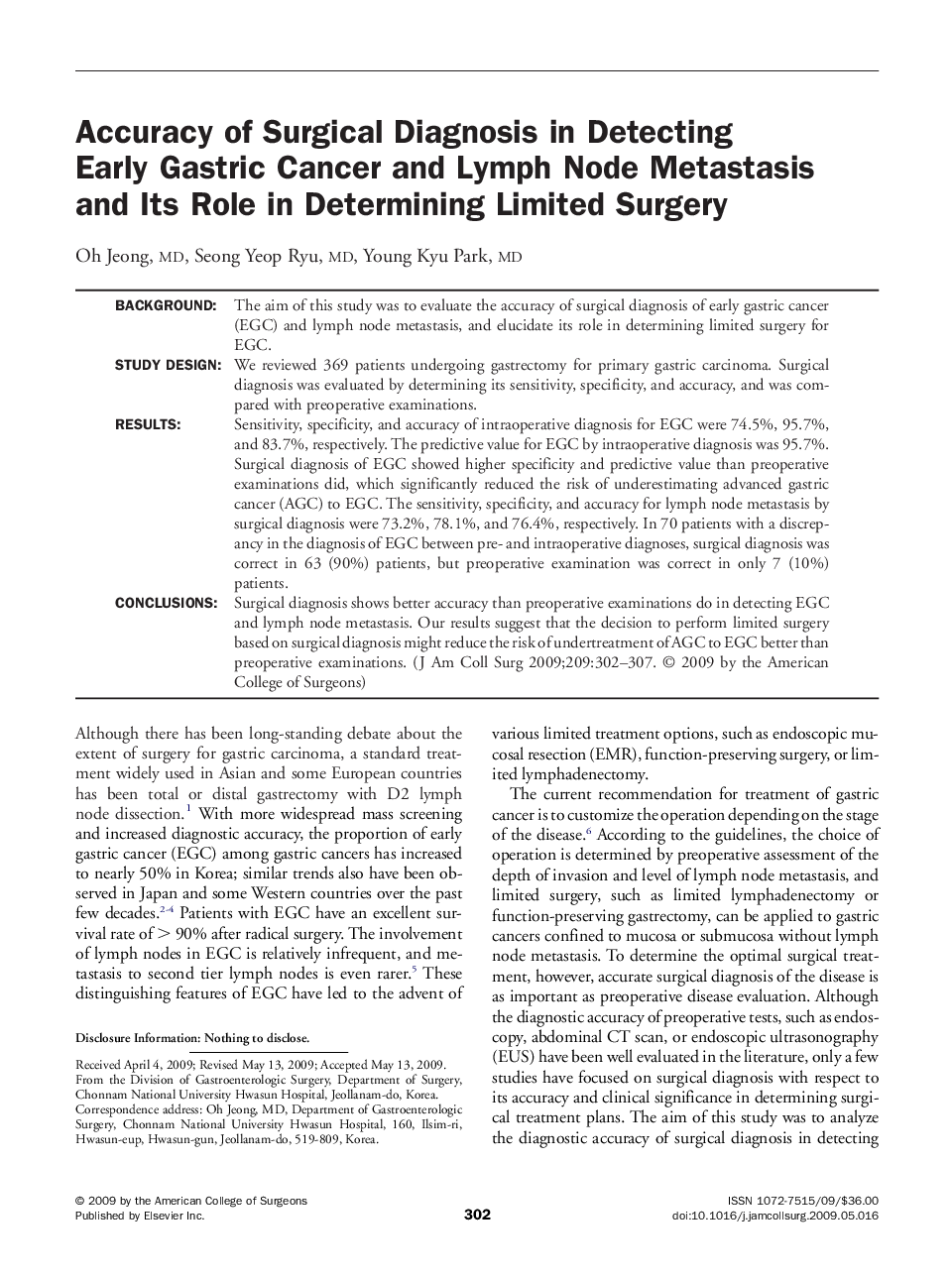| Article ID | Journal | Published Year | Pages | File Type |
|---|---|---|---|---|
| 4295105 | Journal of the American College of Surgeons | 2009 | 6 Pages |
BackgroundThe aim of this study was to evaluate the accuracy of surgical diagnosis of early gastric cancer (EGC) and lymph node metastasis, and elucidate its role in determining limited surgery for EGC.Study DesignWe reviewed 369 patients undergoing gastrectomy for primary gastric carcinoma. Surgical diagnosis was evaluated by determining its sensitivity, specificity, and accuracy, and was compared with preoperative examinations.ResultsSensitivity, specificity, and accuracy of intraoperative diagnosis for EGC were 74.5%, 95.7%, and 83.7%, respectively. The predictive value for EGC by intraoperative diagnosis was 95.7%. Surgical diagnosis of EGC showed higher specificity and predictive value than preoperative examinations did, which significantly reduced the risk of underestimating advanced gastric cancer (AGC) to EGC. The sensitivity, specificity, and accuracy for lymph node metastasis by surgical diagnosis were 73.2%, 78.1%, and 76.4%, respectively. In 70 patients with a discrepancy in the diagnosis of EGC between pre- and intraoperative diagnoses, surgical diagnosis was correct in 63 (90%) patients, but preoperative examination was correct in only 7 (10%) patients.ConclusionsSurgical diagnosis shows better accuracy than preoperative examinations do in detecting EGC and lymph node metastasis. Our results suggest that the decision to perform limited surgery based on surgical diagnosis might reduce the risk of undertreatment of AGC to EGC better than preoperative examinations.
